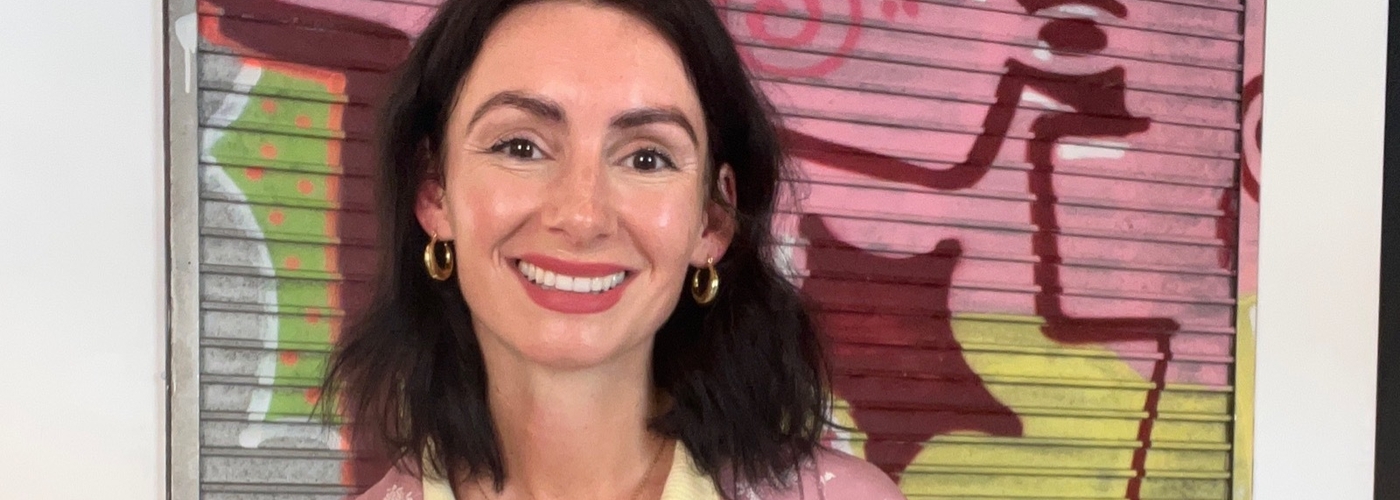Harley Young chats to the Founder of The Loud Quiet about ADHD in adulthood, breathwork classes, and being kind to yourself
With ADHD diagnoses becoming more recognised in adulthood, it’s important that the world we live in, especially the workplace and our surrounding communities, adapts and becomes more neuro-inclusive to ensure that everyone can thrive and succeed in their own creativity.
But, without a support network, a space to offload, a space to breathe, it can often feel like you’re fighting a losing battle.
That’s why Rebecca (Becky) Ryder, a business owner and creative who was diagnosed with ADHD in her 30s, set up ‘The Loud Quiet’ - a series of classes and workshops designed to provide fellow neurodivergent creatives (and neurotypical ones, too) with a space that gave them ‘permission to pause’, nurture their inner world and ‘remember who they are’.
I caught up with Becky ahead of her next workshop to discuss how setting up her breathwork business allowed her to make sense of her diagnosis, find her purpose, and look forward to life.
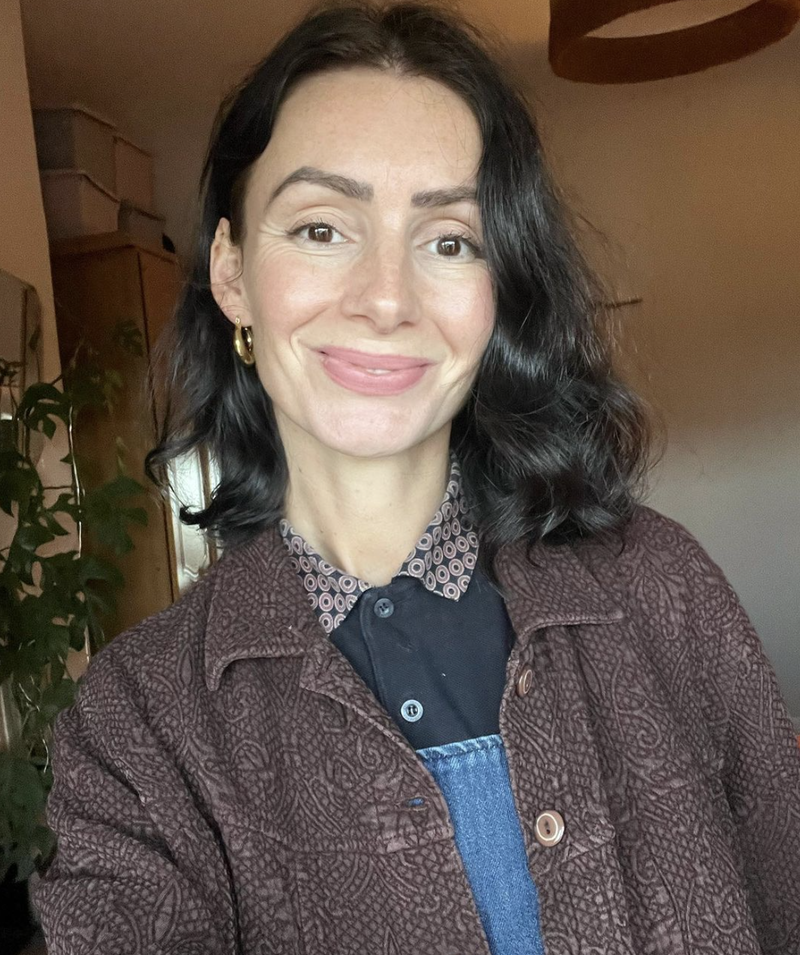
Hi, Becky. Tell us a little bit about yourself.
I'm a business owner, creative and fully trained breathwork facilitator. I’ve worked in digital marketing for most of my career, after starting out in journalism.
In recent years, I've increasingly worked in mental health and wellbeing, after working at Priory Group before self-employment. I'm now training for both a counselling diploma and a certification in somatic therapy, bringing together eastern and western approaches to healing.
I'm also a writer, actress, public speaker, podcaster and lover of vintage clothing, recently launching my own brand for fun - a typical ADHD multi-hyphenate with many passions and enthusiasms! I love people and connecting with them on a deeper level (we can't do small talk with ADHD!). It really fulfils me to help people feel less alone in their challenges and to bring people together in community events.
Many systems just weren't built for us, in the traditional workplace and elsewhere too, so it can feel like we're destined to fall behind, fail and not fit in - but times are changing.
What is involved in a ‘Breathwork for ADHD’ workshop?
I lead everyone in a journaling exercise and we enjoy relaxed group discussion about our experiences with ADHD. I talk about the benefits of breathwork for managing ADHD, before facilitating a conscious connected breathwork session to music. In the calming space, the focus is on both loving ourselves as we are and finding connection in community, as feelings of isolation are common with ADHD.
We then have a chance to share with each other about what came up for us after the breathwork session. It's important for us to hear each other's experiences, as we often keep things to ourselves and try to be self-sufficient; it can be a lot to carry.
What is breathwork?
There are many styles of breathwork, all with different approaches and benefits.
The conscious connected breathwork practice I qualified in has various physical, mental, emotional and spiritual benefits. It’s a valuable tool for connecting to our bodies, so we can be more present in everyday life and combat the sense of being overwhelmed that our busy minds can cause. It helps us balance the nervous system and access the parasympathetic state (rest and repair, also called rest and digest; rather than spending too much time in fight or flight mode).
It also helps release stress, suppressed emotions and stuck energy, for better physical and mental health, a deeper quality of rest and even improvements in our relationships with others. It helps us to access what we bury within our subconscious as we get on with everyday life - some of it can go right back to childhood - for potentially profound levels of healing.
We can then move forward from past pain and avoid being held back by it, experiencing more joy, freedom and contentment.
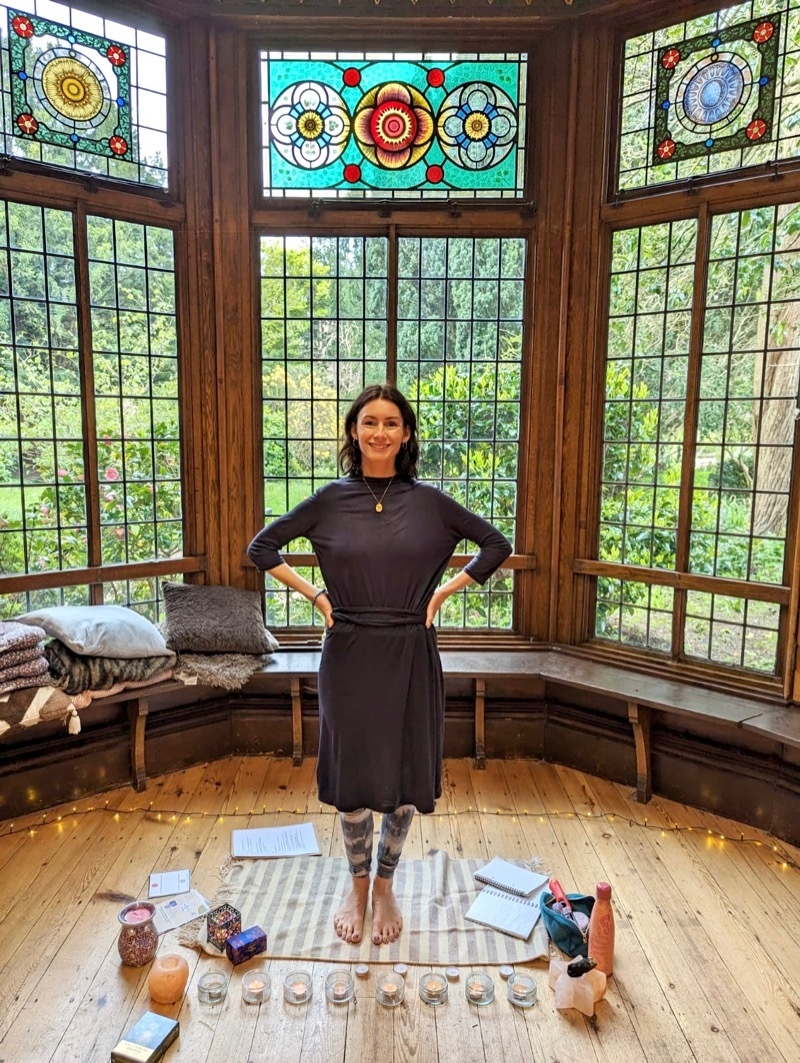
How can breathwork workshops help people with ADHD find their inner calm?
ADHD can really mess with our chances of inner peace in so many ways.
Firstly, overstimulation and dysregulation can make us breathe irregularly - too quickly, too shallow and high in the chest, rather than deeply into the stomach. This can make us tense, stressed, unable to think properly and extremely tired, as 'over-breathing' uses so much more energy. Training ourselves to breathe more slowly and deeply, and regularly bring more attention to our breath, can help us feel more grounded and improve many challenges associated with ADHD.
It helps us stay with our physical experience, rather than being lost in overthinking and frequently disconnected from our bodies - which I really relate to, believe me. This helps slow down and gain more clarity around racing thoughts, and alleviate associated anxiety, which we can often feel helpless to control.
Our dysregulated nervous systems can lead to an inability to relax, physical tension, muscle pain and exhaustion. Breathwork gives us an outlet for stress and lets us feel more in control of our minds, which can then help to release the physical tension; this can both relax us and energise us.
Taking time out from the mind supports our capacity for focus and refines our ability to feel our emotions, rather than shutting them off in favour of over-intellectualising and rationalising everything. This helps us to 'lighten our load' and accept ourselves as we are, rather than masking, hiding parts of ourselves and feeling shame about our day-to-day challenges. We can then connect more easily to self-compassion, loving ourselves and feeling more of a sense of safety in our physical being.
Who are your sessions designed for?
Anyone with ADHD is welcome, whether you’re officially diagnosed, self-diagnosed or just starting to figure things out. My breathwork sessions are usually attended by a combination of people new to breathwork and those who have done it before.
Tell us a bit about the space you’ve chosen to host your next event.
Yoga Sangha Manchester is a lovely cosy, intimate space on leafy Cheadle green, in the centre of Cheadle Village. There is free parking onsite.
What made you want to start a business focused on breathwork?
I first came to breathwork a few years ago, when I was feeling a bit lost over how I wanted to move forward in life during Covid. I wanted to find my purpose and look forward to life beyond lockdown.
I started paying more attention to my mental and spiritual health to help me get to know myself better and love myself more. I think being diagnosed with ADHD in 2022 was a big part of why I then started The Loud Quiet.
The strands of my mission are 'Permission to pause, nurturing your inner world and remembering who you are', and I can connect all of those to my journey of getting to know myself as someone who's neurodivergent. Less a 'journey', more an absolute rollercoaster.
Anyone with ADHD will know we never let ourselves 'pause', so learning more about slowing down was important to me. It's the only way we can hear ourselves and trust our own wisdom. We disconnect from our inner worlds and don't validate ourselves enough. And I'm really passionate about remembering who we are; being the most authentic versions of us, rather than masking and being what we think others want us to be.
By teaching me how to be more physically present in the world, breathwork has allowed me to find more joy in noticing the little things all around us. For example, connecting to nature is a big one for ADHD, as we need time immersed in greenery and natural life to help us decompress. Also, by helping me navigate my emotions, rather than feeling overwhelmed by them and always questioning what I'm feeling, breathwork empowered me to be myself, find my inner power and live life more confidently.
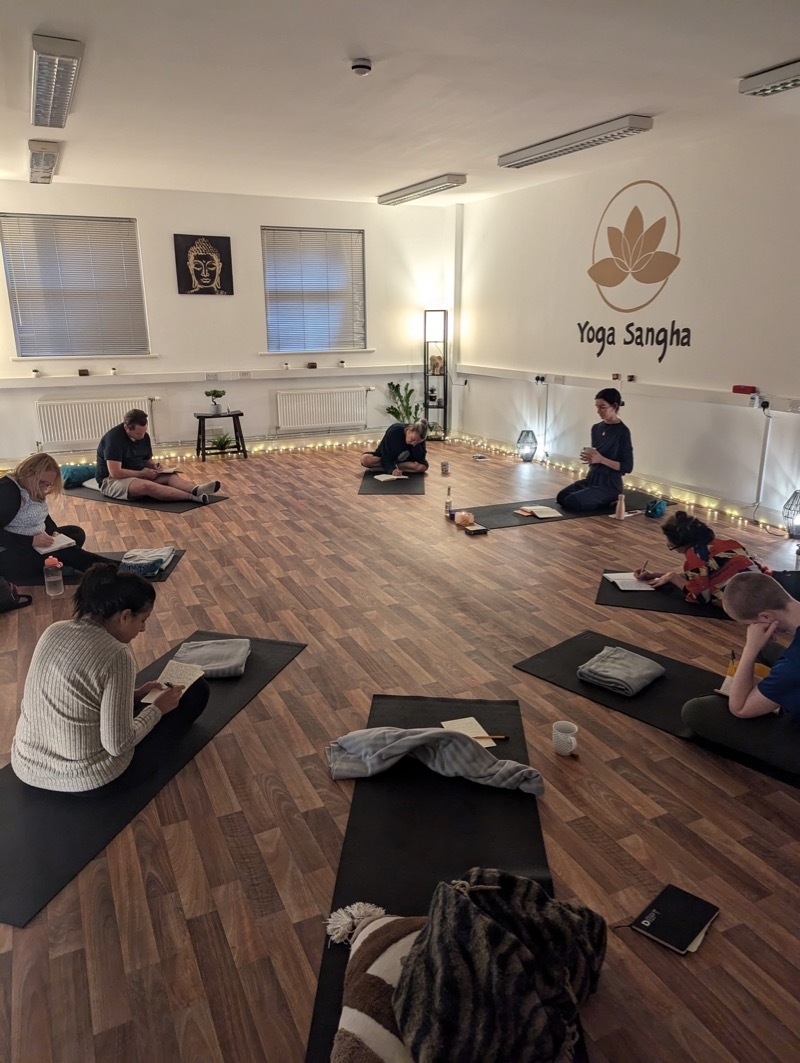
As someone who was diagnosed with ADHD in their 30s, what advice would you give to others who have also been diagnosed with ADHD (or are seeking a diagnosis) as an adult, and are looking for tips on how to make adjustments?
Please be kind to yourself and remember there's nothing wrong with you.
A common thing people with ADHD say after diagnosis is 'I realised I wasn't crazy.' It can be incredibly validating to finally be seen and understand ourselves better. At the same time, I know it can lead to a complete identity crisis too, with panic over how to live our lives with this new knowledge. That hit me quite hard for most of the first year after my diagnosis.
It's also key to realise that following our passions is important for helping us work to our full potential - to simplify a complex issue, there's no dopamine to be found in things that bore us. It will also help our self-esteem to do things we're good at and that we love.
Also, many systems just weren't built for us, in the traditional workplace and elsewhere too, so it can feel like we're destined to fall behind, fail and not fit in - but times are changing.
It's really encouraging to see neuro-inclusion being embraced more now, so there are plenty of people who advocate on our behalf too. So I would say speak up for what you need and champion yourself. I was getting in my own way for much of my career because I didn’t even know my needs, so I certainly wasn't asking for them to be met. Looking back, I'm really grateful for people who supported me and helped me work to my own strengths and talents. So having a good group of people you can trust is crucial. Then you can feel confident in speaking up, as the worst thing we can do is keep quiet when we're struggling.
Rejection-sensitive dysphoria makes us pretty prone to doing this, so remember that people are much more capable of supporting and accepting us than we might think. And what we might feel is a career-ending crisis is often not that big a deal, when we just ask for help.
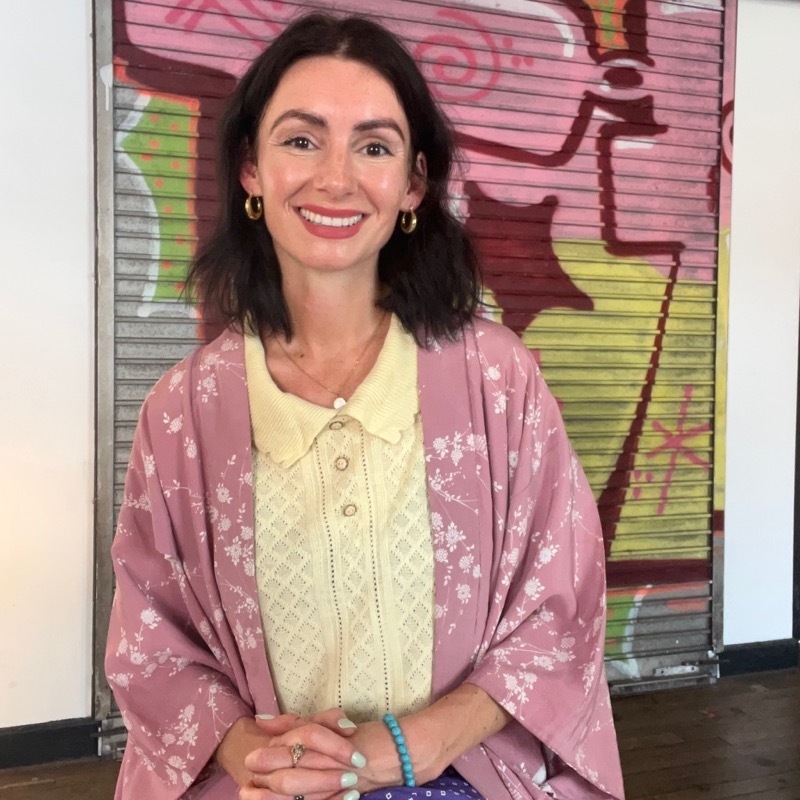
If you’d like to join Becky’s next workshop, Hyper-Grounded Communities: The Breathwork for ADHD Workshop, which will be hosted at Yoga Sangha Manchester in Cheadle on Sunday 3 November, you can book your tickets here.
To find out more about Becky's upcoming workshops, classes and 1:1 breathwork sessions, visit www.theloudquiet.co.uk.
For more information on ADHD diagnoses, visit www.nhs.uk.
Read next: A chat with Blossoms
Read again: Can we get a rewind? A conversation with Mars Tapes, Afflecks
Get the latest news to your inbox
Get the latest food & drink news and exclusive offers by email by signing up to our mailing list. This is one of the ways that Confidentials remains free to our readers and by signing up you help support our high quality, impartial and knowledgable writers. Thank you!

Join our WhatsApp group
You can also get regular updates on news, exclusives and offers by joining the Manchester Confidential WhatsApp group.






